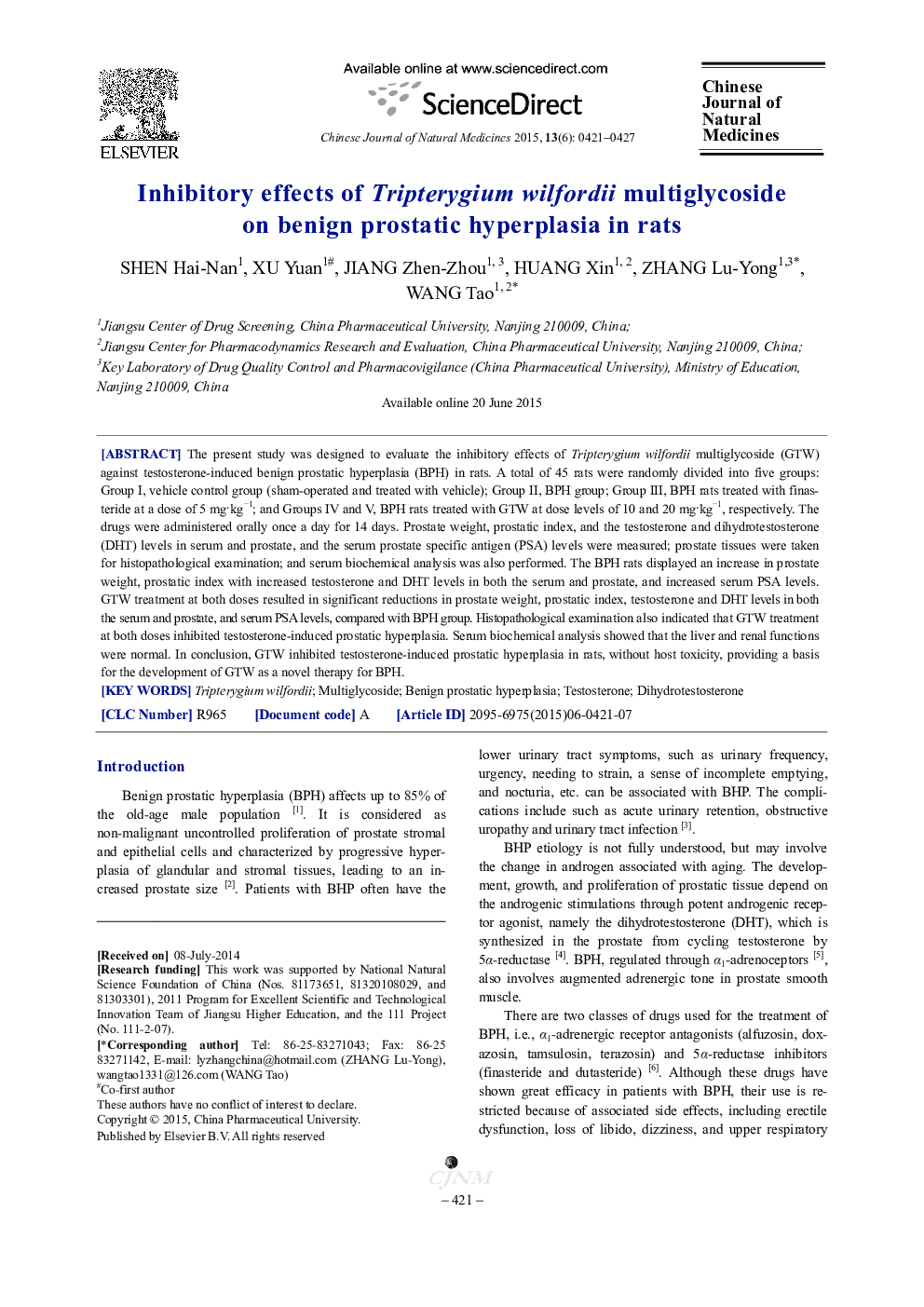| Article ID | Journal | Published Year | Pages | File Type |
|---|---|---|---|---|
| 2526256 | Chinese Journal of Natural Medicines | 2015 | 7 Pages |
The present study was designed to evaluate the inhibitory effects of Tripterygium wilfordii multiglycoside (GTW) against testosterone-induced benign prostatic hyperplasia (BPH) in rats. A total of 45 rats were randomly divided into five groups: Group I, vehicle control group (sham-operated and treated with vehicle); Group II, BPH group; Group III, BPH rats treated with finasteride at a dose of 5 mg·kg−1; and Groups IV and V, BPH rats treated with GTW at dose levels of 10 and 20 mg·kg−1, respectively. The drugs were administered orally once a day for 14 days. Prostate weight, prostatic index, and the testosterone and dihydrotestosterone (DHT) levels in serum and prostate, and the serum prostate specific antigen (PSA) levels were measured; prostate tissues were taken for histopathological examination; and serum biochemical analysis was also performed. The BPH rats displayed an increase in prostate weight, prostatic index with increased testosterone and DHT levels in both the serum and prostate, and increased serum PSA levels. GTW treatment at both doses resulted in significant reductions in prostate weight, prostatic index, testosterone and DHT levels in both the serum and prostate, and serum PSA levels, compared with BPH group. Histopathological examination also indicated that GTW treatment at both doses inhibited testosterone-induced prostatic hyperplasia. Serum biochemical analysis showed that the liver and renal functions were normal. In conclusion, GTW inhibited testosterone-induced prostatic hyperplasia in rats, without host toxicity, providing a basis for the development of GTW as a novel therapy for BPH.
Figure optionsDownload full-size imageDownload as PowerPoint slide
